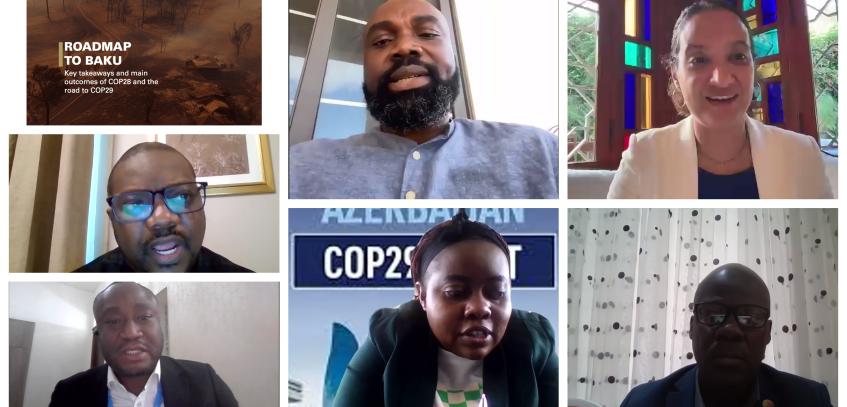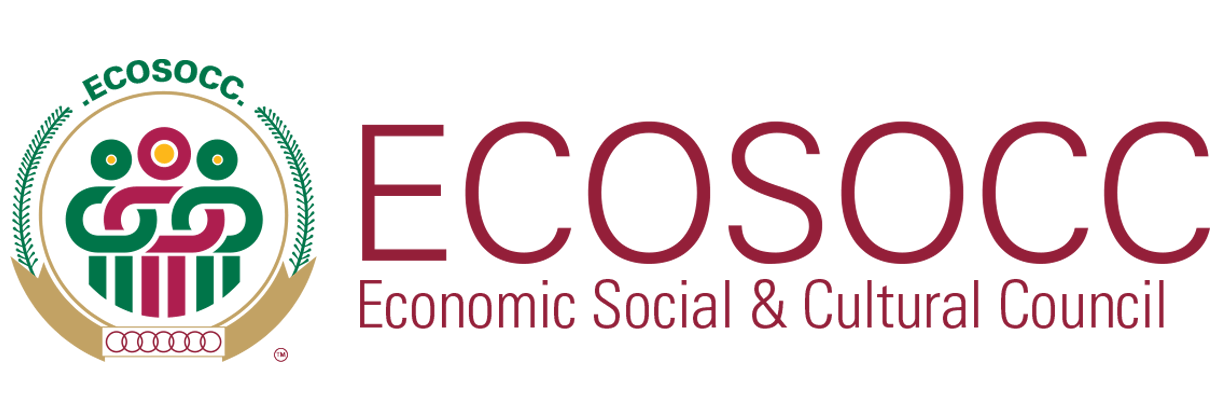The African Union Economic, Social, and Cultural Council (AU ECOSOCC) convened a webinar on 18 November 2024 to launch the 'Civil Society Roadmap to COP29.' The session aimed to equip African civil society organizations (CSOs) with a structured framework to engage effectively in global climate negotiations at COP29 in Baku, Azerbaijan, and beyond.
'Civil Society Roadmap to COP29' Webinar
The webinar served as a platform to introduce the 'CSO Roadmap to COP29,' a document designed to:
- Guide African CSOs in aligning their advocacy efforts with Africa's climate priorities.
- Strengthen collaboration between CSOs, policymakers, and other stakeholders.
- Mobilize civil society to influence outcomes at COP29 and advance Africa's climate agenda.
Key Discussions and Insights
The session opened with remarks from Mr. Kyeretwie Osei, Head of Programs at ECOSOCC, who highlighted the need for strategic coordination among CSOs. He stated that the purpose of the webinar, and the 'Civil Society Roadmap to COP29' document is for CSOs and policymakers to reflect on key insights from the COP28 African delegation and their negotiating positions, and identify crucial lessons to guide future efforts.
The document provides a foundation for informed advocacy, empowering stakeholders to drive meaningful change within their respective contexts and areas of influence.
Mr. William Carew, Head of the ECOSOCC Secretariat, formally launched the 'CSO Roadmap to COP29' document. He underscored its role in providing a clear path for civil society to contribute meaningfully to climate discussions, stating that the Roadmap is a critical step towards mobilizing diverse voices and influencing policy decisions that reflect Africa's climate realities and priorities.
Key Speakers and Their Contributions
Dr. Yousra Abourabi (International University of Rabat):
Dr. Abourabi detailed the Roadmap's structure and its practical applications. She stressed that CSOs play an essential role in bridging gaps between local communities, policymakers, and the private sector to address climate change comprehensively.
Mr. Arthur R. M. Becker (Environmental Protection Agency, Liberia):
Mr. Becker highlighted the role of CSOs in advocating for marginalized populations and ensuring accountability in climate governance. He called on CSOs to push for ambitious commitments from governments and corporations at COP29.
Mr. Babatunde Iyanda (African Risk Capacity):
Mr. Iyanda addressed the urgent need for innovative disaster risk financing and insurance mechanisms in Africa. He emphasized the disproportionate impact of climate change on the continent and the importance of building resilience through strategic planning and investment.
Next Steps
In his closing remarks, Mr. Osei outlined the next phase of the initiative:
- Monitoring commitments made at COP29 to ensure implementation at national and institutional levels.
- Organizing a year-long series of advocacy engagements to strengthen civil society's role in climate policy.
- Collaborating with stakeholders to increase the impact of the 'CSO Roadmap to COP29.'
Conclusion
The webinar marked a significant milestone in preparing African CSOs for COP29. By launching the 'CSO Roadmap to COP29,' ECOSOCC provided a practical tool for aligning civil society efforts with Africa's climate priorities. The discussions reinforced the need for coordinated action to address the continent's unique challenges and advocate for equitable solutions on the global stage.





